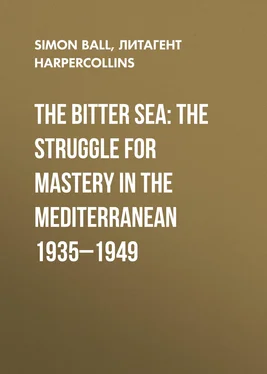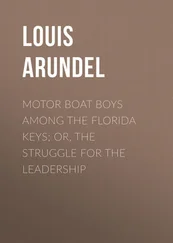The choice between definitely anti-British and possibly pro-Nazi Frenchmen, or definitely anti-French but possibly pro-Nazi nationalists, was hardly appetizing. The means by which Britain might subvert such alignments were not in good repair when the point of crisis arrived. The man supposedly coordinating policy for Wavell was Colonel Illtyd Clayton. Clayton, by virtue of family connections–his older brother had been Lawrence of Arabia’s boss–had spent his entire professional life enmeshed in the intrigues of the Arab world. He, if anyone, was the Islamic expert for whom Churchill sought. At the exact moment he was called upon, however, he was having little success in controlling the civil war that had broken out between the secret organizations in Cairo and the Levant. The long-time Middle East hand that he was, Clayton still preferred working with his old French contacts. ‘Time and time again,’ complained one SOE leader whom Clayton held in check, ‘we have asked’ to be allowed to to cooperate with anti-French heterodox sects, such as the Druze, disillusioned by Dentz’s open favour towards orthodox Sunnis. ‘The answer given by Clayton has always been’, his interlocutor reported, ‘“No; nothing must be done to upset Dentz; we can always get the Arabs when we want them; we are staking everything on Dentz swinging over entirely to our side; or at any rate resisting any attempt by the Germans to occupy Syria”.’ 14
In retrospect, it was clear that Clayton had misread Dentz, but he was not solely grasping for a shop-worn former amity. In his desire to bluff the British, Dentz had cast an indulgent eye on some cross-border contacts. Clayton and Dentz were fighting for the soul of Colonel Robert Collet. Collet’s soul had both material and symbolic value, for he was by far the most famous Frenchman in the Levant. Everyone had to have their own Lawrence of Arabia; von Hentig was Germany’s and Collet had been France’s. In the inter-war period French governments and news-reels had made a cult of Collet, leading his highly colourful Circassian cavalry who, the propagandists had their audience believe, were his ‘children’, looking up to him as a ‘father’ if not a demi-god. The Circassians were not just there for show, although their fair-skinned women were undoubtedly a favourite of orientalist pornography Collet’s men had shown an enormous aptitude and appetite for butchering their racial and religious rivals in the massacres that had done so much to cement French rule. Dentz, however, was far from trusting his glamorous subordinate. Word reached him that the Circassians openly mocked the French for their wretched military performance against the Germans and the British. He had them confined to their barracks, and resorted to the low trick of having the carburettors removed from their lorries so that they could not decamp en masse to Palestine. Yet neither did Dentz wish to drive Collet into British hands. A ludicrous game developed between them. Each weekend Collet would announce that he was ‘going to Beirut’, pile a few Circassians into his car and then drive in the opposite direction across the Palestinian border to Haifa. The Circassians could then desert in safety and Collet would sit down and talk to Clayton’s men. He would then drive to Beirut for the weekend, all under the eyes of Dentz’s spies, who reported each move. It was not until the end of May 1941, when Collet finally took the momentous decision to desert, that Dentz ordered him to Damascus and court martial. One might call this game of shadows a draw between Dentz and Clayton since, when Collet finally fled to Transjordan, about half of his original Circassians came with him to fight with the British. 15
Clayton viewed Arab politicians as tarts; they had been bought by the Nazis, but they would be happy to be bought by the British when the time came. It hardly helped the British cause that almost their only friends amongst the local population were ‘the Friends’. ‘The Friends’ was the rather arch terminology used for militant Jews recruited to the British cause. Churchill, a believer in the wisdom of arming Zionists, should have been happy with these recruits. Most authorities in the Levant thought they were poison. Clayton at GHQ, the government of Palestine and the commander of British troops in Palestine all ordered Adrian Bishop, the champion of their use, to break off contact. Like any good secret operative he simply took pains to conceal his activities more carefully.
His critics objected not only to the fact of Jewish recruitment but to the nature of the recruits. Bishop reasoned that it was no good having intellectuals and politicians on one’s side. Men of action were needed. He found such men, ‘toughs’, among the Irgun. This was dangerous ground. The Irgun were unreconstructed terrorists, tarred, not least, with the brush of murdering fellow Zionists. The Irgun had been responsible for blowing up a refugee ship in Haifa harbour, killing over two hundred civilians and a number of policemen. The military wing of the Revisionists, of which they were part, had in the mid-1930s been the clients of Mussolini. Then they had accepted supplies and training from the Fascists; now they were accepting them from the British. 16 It was only when the call went out for ‘special operations’ in Iraq and Syria that Bishop was able to reveal, triumphantly, that ‘it is perhaps extremely fortunate that we have a certain number of trained men at our disposal–trained, that is to say, against the wishes of all the authorities’. The first mission for which the ‘toughs’ were put up was the assassination of von Hentig, in which they refused to participate. 17 Instead they were sent to Iraq with orders to pose as Arab terrorists; their violence was to spread discord amongst supporters of the revolt and aid British intervention propaganda. However, the leader of the Irgun ‘was shot dead before they were able to function’. As SOE’s internal assessment concluded: ‘the whole of this undertaking was most dangerous and ill-conceived, and it is lucky that the Iraqis never discovered that we employed Palestinian Jews against them during their revolt’. 18
As planning for the Syrian operation got under way, Wavell cabled home that ‘all senior officers on my staff who have dealings with [special operations] are convinced that the organisation in the Mideast is a racket’. He had decided to bring all special operations firmly under military control through the creation of a ‘Jerusalem bureau’. 19 As British power teetered in the spring of 1941, many looked to the dark arts of propaganda to make right what had been lost on the battlefield. But those in charge of black propaganda turned their weapons on each other, rather than any external enemy; charges of sexual and financial misconduct rebounded around the Middle East. 20 As one of the officers sent in to clear up the mess remarked, ‘nobody who did not experience it can possibly imagine the atmosphere of jealousy, suspicion and intrigue that embittered the relations between the various secret and semi-secret departments in Cairo during the summer of 1941’. 21 In any case there was little to suggest that the secret departments had anything to offer in the way of expertise in manipulating Levantine politics to British advantage. They comprised a hotch-potch of military intelligence, Indian policemen, civilians who might speak Serbo-Croat, or were believed to be good at deception because they were, for example, lawyers. SOE’s chief ‘Islamic expert’ was Heyworth Dunne, a tarbush-wearing English Muslim with an Egyptian wife. Dunne devoted his time mainly to ‘astrologers, whom he used to prophesy the future and the outcome of the war’. 22 This is not what Churchill had in mind when he called for such experts to be consulted.

With so few friends, all that was left to Britain was the exercise of military power. Wavell was ordered to strike west along the Libyan littoral and north into Syria. He welcomed neither order, believing that he should be given more time to amass a critical weight of trained and equipped forces before taking on another major operation. Thus the stratagems emanating from Churchill’s fertile and information-rich mind were contested at the time and have remained controversial since. There has remained, however, an odd imbalance in these controversies. Wavell ordered his forces to fight a battle and a war in June 1941. The battle–on the Egyptian-Libyan frontier–lasted for two days and changed very little. The war–against France in Syria and Lebanon–lasted for five weeks and led to the occupation of the Levant and the definitive joining of the Near East to the Mediterranean. It took British forces towards the Turkish border at a particularly vital moment. The Turks, always good bellwethers of military fortune, chose the moment when both the Syrian campaign and Libyan battle were in the balance to sign a Friendship treaty with the Nazis. At the same time they colluded with the Italians to subvert the Montreux Convention that banned warships from passing through the Straits in wartime. Churchill himself claimed that the ‘prize is Turkey’. Yet the battle has been regarded as important, the war not. This imbalance was a product of propaganda as much as strategy. 23
Читать дальше













